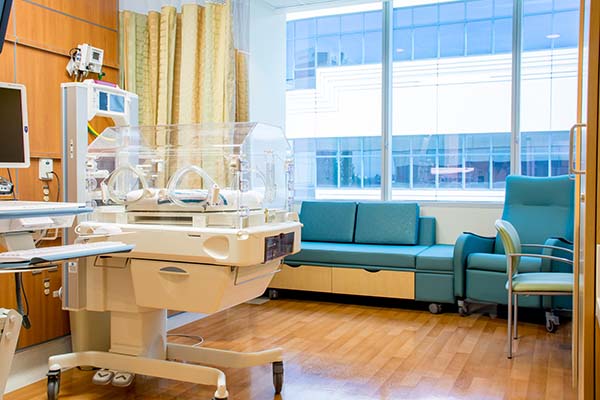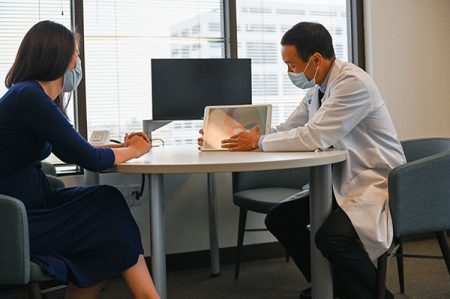Frequently Asked Questions About Intestinal Atresia
What causes intestinal atresia?
Duodenal atresia occurs when your baby’s duodenum does not open properly during development in utero. Jejunoileal atresia is caused by an insufficient flow of blood to your baby’s intestines during development in utero.
How is intestinal atresia diagnosed?
Duodenal and jejunoileal atresia can be diagnosed either during pregnancy or after birth.
Prenatal Diagnosis
Ultrasounds during the second and third trimester can be used to diagnose intestinal atresia.
Duodenal atresia is often diagnosed by an ultrasound image displaying a “double bubble.” The first “bubble” is the fluid-filled stomach and the second bubble is the fluid trapped in the duodenum that is unable to travel down the intestinal tract due to the blockage.
An ultrasound might also detect polyhydramnios (an excess of amniotic fluid) which is a risk factor for having a baby with intestinal atresia, though there are many other reasons for this to occur. An ultrasound might also show one or several loops of dilated bowel.
If you receive a prenatal diagnosis, CHOC’s pediatric surgeons can provide expert counseling to help you prepare for your baby’s safe delivery and for a surgery that will happen shortly after your baby is born.
Postnatal Diagnosis
When intestinal atresia is not diagnosed prenatally, it will usually be diagnosed in the first days after birth. Babies born with intestinal atresia typically show signs as they begin eating. These signs may include vomiting, producing green bile, a bloated stomach or being unable to produce a bowel movement.
A diagnosis after birth is often made by X-ray.
Very rarely there may be a partial blockage that is not diagnosed immediately because food is able to move through the GI tract. In this case the diagnosis may not be made until your baby is a few months old.






















